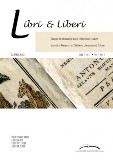Domesticating the Trauma of War in Translation
Domesticating the Trauma of War in Translation
Author(s): Rowena ColesSubject(s): Literary Texts
Published by: Hrvatska udruga istraživača dječje književnosti
Keywords: child reader; culture; domestication; facilitating; translation; normalization
Summary/Abstract: The paper is a comparative study of the novel Once by Morris Gleitzman written for children in English and of its Italian translation. First a brief examination is made of what is meant by the terms ‘domestication’ and ‘foreignization’ in translation. Domesticating a text aims at bringing the text, through translation, closer to the culture of the implied reader, to the image of childhood of that culture, and to the established canons governing children’s literature in that country. Foreignization is a strategy that aims at preserving as many of the linguistic and cultural differences of the original as possible. The two cultures lying behind the languages in question are considered, with particular reference to how such cultural differences affect childhood. The analysis itself starts with an examination of the book covers, in consideration of the fact that covers, as part of the paratext, play an important role in the presentation of a book on the market. Three phenomena are identified that have brought about significant changes in the target text. Selected examples show several differences between the original and its translation in the syntax, the register and the linguistic creativity. In general, the three phenomena point to a process of normalization. It is concluded that in the translation of this novel a domesticating strategy has been used which has adapted the text in order to make it more acceptable to the Italian child reader, or at least to what Italian adults believe is more suitable for such readers. The trauma of war present in the Italian version has, consequently, been rendered somewhat less harsh and shocking.
Journal: Libri & Liberi: časopis za istraživanje dječje književnosti i kulture
- Issue Year: 1/2012
- Issue No: 01
- Page Range: 45-66
- Page Count: 11
- Language: English

